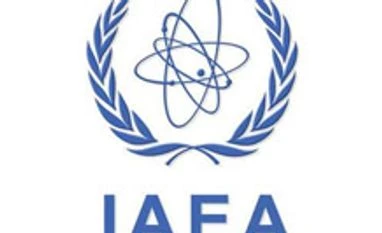The UN atomic watchdog's board today drew a line under a long-running probe into Iran's past efforts to develop nuclear weapons, removing an important obstacle to implementing July's landmark deal with big powers.
A resolution approved by the International Atomic Energy Agency's (IAEA) 35-nation board of governors in Vienna "closes the board's consideration" of the "possible military dimensions" (PMD) probe and clears the way to annul previous resolutions.
Iran's envoy to the IAEA said afterwards that Tehran would now "accelerate" enacting July's accord to scale down its nuclear programme in exchange for sanctions relief, and fulfill its side of the bargain within "two to three weeks".
He said that "the purely peaceful nature of Iran's nuclear programme has once again been proven".
The IAEA keeps close tabs on Iran's declared nuclear activities, and its inspections role is set to grow under July's hard-fought deal, which defused a standoff dating back to 2002.
But the Vienna-based watchdog has also long sought to clear up allegations that until 2003, and possibly since, Iran also secretly sought to develop an actual nuclear weapon.
After stalling for many years, Iran agreed in July to cooperate with the IAEA to address the claims.
The IAEA on December 2 released a "final assessment" -- even though it did not receive all the information it sought -- concluding that some of the allegations were indeed accurate.
It said Iran conducted "a range of activities relevant to the development" of a nuclear bomb until 2009, although this work was preliminary and did not involve fissile material.
Despite the findings, the six major powers -- the United States, Russia, China, Britain, France and Germany, who co-authored the IAEA resolution -- decided to move on.
Iran has a "long history of concealment, denial and deception", but the July deal is "forward-looking," the US ambassador to the IAEA, Henry Ensher, said Tuesday.
And the powers stress that Iran will remain under close IAEA scrutiny.
The July deal "prohibits the resumption of such nuclear weapons-related activities and provides comprehensive tools for deterring and detecting any renewed nuclear weapons work," US Secretary of State John Kerry said on Tuesday.
"This is not the end of the process at all," IAEA head Yukiya Amano told reporters, saying that a "legacy of mistrust between Iran and the international community" remains to be overcome.
A resolution approved by the International Atomic Energy Agency's (IAEA) 35-nation board of governors in Vienna "closes the board's consideration" of the "possible military dimensions" (PMD) probe and clears the way to annul previous resolutions.
Iran's envoy to the IAEA said afterwards that Tehran would now "accelerate" enacting July's accord to scale down its nuclear programme in exchange for sanctions relief, and fulfill its side of the bargain within "two to three weeks".
More From This Section
"We can say with certainty that the fraudulent issue of PMD is a thing of the past," Iranian Foreign Minister Mohammad Javad Zarif said in Tehran.
He said that "the purely peaceful nature of Iran's nuclear programme has once again been proven".
The IAEA keeps close tabs on Iran's declared nuclear activities, and its inspections role is set to grow under July's hard-fought deal, which defused a standoff dating back to 2002.
But the Vienna-based watchdog has also long sought to clear up allegations that until 2003, and possibly since, Iran also secretly sought to develop an actual nuclear weapon.
After stalling for many years, Iran agreed in July to cooperate with the IAEA to address the claims.
The IAEA on December 2 released a "final assessment" -- even though it did not receive all the information it sought -- concluding that some of the allegations were indeed accurate.
It said Iran conducted "a range of activities relevant to the development" of a nuclear bomb until 2009, although this work was preliminary and did not involve fissile material.
Despite the findings, the six major powers -- the United States, Russia, China, Britain, France and Germany, who co-authored the IAEA resolution -- decided to move on.
Iran has a "long history of concealment, denial and deception", but the July deal is "forward-looking," the US ambassador to the IAEA, Henry Ensher, said Tuesday.
And the powers stress that Iran will remain under close IAEA scrutiny.
The July deal "prohibits the resumption of such nuclear weapons-related activities and provides comprehensive tools for deterring and detecting any renewed nuclear weapons work," US Secretary of State John Kerry said on Tuesday.
"This is not the end of the process at all," IAEA head Yukiya Amano told reporters, saying that a "legacy of mistrust between Iran and the international community" remains to be overcome.
)